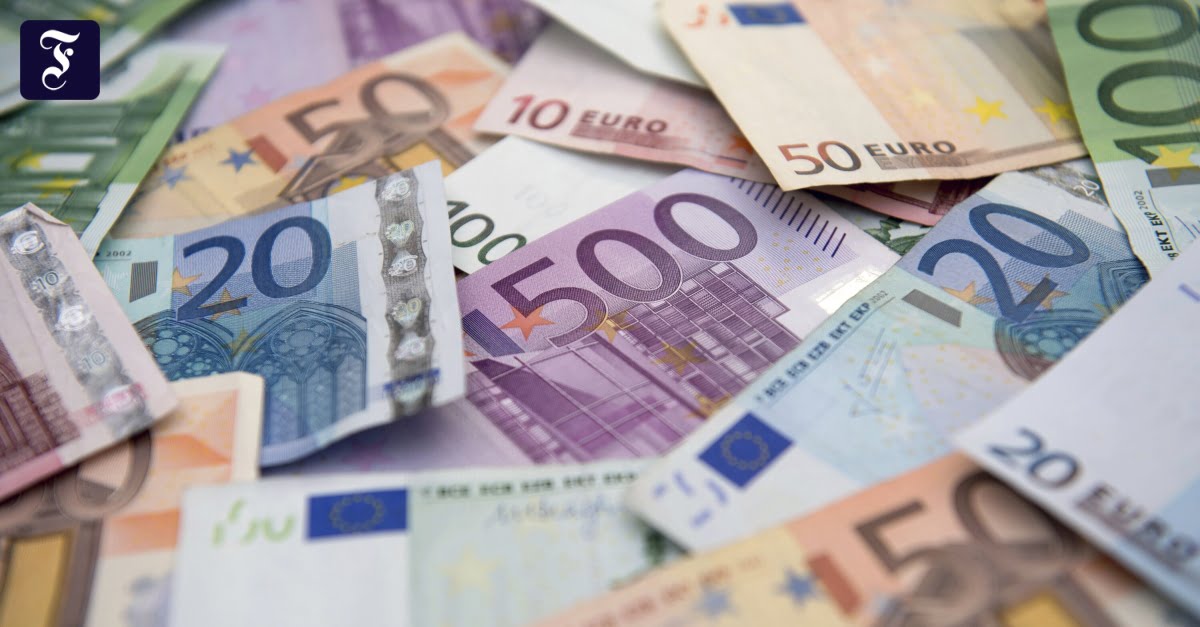Prices in the euro area continued to rise sharply in April. As the European statistics office Eurostat announced on Friday after an initial estimate, the inflation rate in the euro zone was 7.5% in April. In March it was 7.4 percent, in February it was 5.9 percent. Inflation rates of more than 7% did not exist before since the creation of the common European currency.

As a result, inflation in the eurozone as a whole is currently on a similar scale to that of Germany. There, the Federal Statistical Office published an initial estimate of 7.4 percent on Thursday. According to the European method of calculating the Harmonized Consumer Price Index, German inflation is already at 7.8%. But there have long been euro countries with completely different inflation rates: the Baltic States and the Netherlands were the most recent leaders with double-digit inflation rates, and now Slovakia has joined them: the rate in Estonia is now 19% and Lithuania 16.6 percent, Latvia 13.2 percent, the Netherlands 11.2 percent and Slovakia 10.9 percent.
Bundesbank President Joachim Nagel believes it is possible for Germany to come at least close to double-digit inflation rates if there is a gas embargo against Russia. A possible oil embargo against Russia pushed up the price of oil on Friday.
Inflation in France has been exceptionally low for a long time, possibly also due to some political intervention before the elections. France is now reporting an increase from 5.1 to 5.4 percent in April. According to Insee’s statistics office, the rise in prices came mainly from rising energy costs, which increased by 26.6% year on year. Fresh food prices also rose at an above average rate. Industrially manufactured goods, on the other hand, rose a little less.
Rising energy prices slows down a bit
Compared to the previous year, the biggest price increases in Europe can still be observed for energy, especially for heating oil, gasoline and diesel. However, some of these prices have dropped compared to March this year. The price of oil, in particular, dropped back a bit, which had an impact on many other prices. In the short term, food, among other things, became noticeably more expensive, but so did travel.
“Unsurprisingly, energy prices have risen sharply again compared to the previous year, even though the price increase has slowed down a bit,” commented DZ Bank analyst Christoph Swonke of the latest price developments. “Food, goods and services are playing an increasingly important role in inflation, and the direct impact of the war in Ukraine is particularly evident in food.” smaller this year fail than usual, which stresses food markets. In view of global supply chain problems and the energy security discussion due to the uncertain progress of the war in Ukraine, inflation will remain at a high level for the next few months: “There is no relief in sight.”
So far, the European Central Bank (ECB) has been hesitant to act quickly against high inflation. The official line is that at the next monetary policy meeting on June 9, based on available data, a decision will be taken to end bond purchases in the third quarter, that is, the months of July to September, and to increase rates. interest “sometime later”. “Some time later” could mean a week later or a few months later, said ECB President Christine Lagarde.
ECB may raise interest rates in July – but that’s not certain yet
However, there were now growing voices from the ECB, not just from individual national governors but also from the Governing Board, calling for the first interest rate hike in July. ECB Vice President Luis de Guindos described rate hikes as “possible” in July. So, obviously, one can interpret the previous communication from the central bank in such a way that the last purchases of new bonds could already be made in June and according to the planned sequence the path for the interest rate hikes in July is clear – or they both happen in July.
Published/Updated:
Published/Updated:
Published/Updated:
Financial markets are now a little more confident that the ECB will act soon. In any case, investment bank Goldman Sachs has revised up its forecast for further interest rate developments: it now expects the ECB to raise its interest rates by 0.25% in July, followed by further interest rate hikes in september and december and four more steps next year 2023
Furthermore, economists at Goldman Sachs expect the ECB to likely decide in June whether to end its bond-buying program at the end of the second quarter. Economists attribute this forecast to, among other things, better-than-expected growth developments in the euro area, continued strong inflationary pressure and the ECB’s recent statements on high inflation expectations.
Ulrich Kater, economist at Deka-Bank, commented: “The inflation alarm clock has been ringing for some time, the ECB just hit the snooze button – it’s over now, the central bank will act.”

